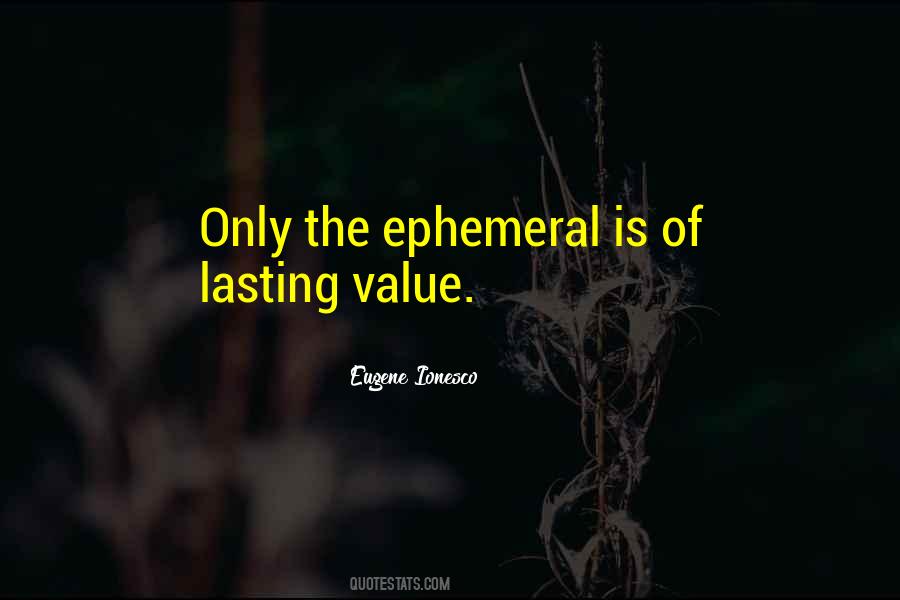
Top 33 Quotes About Kehlmann
#1. Like, for example, sleeve length. Should he hide the tattoos? Or just wear a T-shirt and let "them" do the talking? If one picture's worth a thousand words, that's the first two thousand right there, two thousand minus the hi howareya nicetameetcha.
Francine Prose
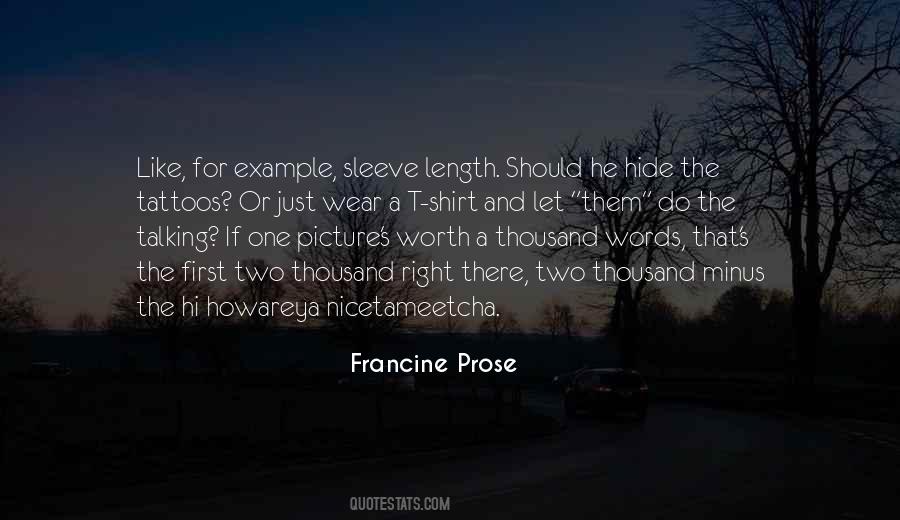
#2. You know what whore is. Next the devil adultery,
Enters the devil murder.
John Webster

#3. It was both odd and unjust, a real example of pitiful arbitrariness of existance, that you were born into a particular time & held prisoner there whether you wanted it or not. It gave you an indecent advantage over the past and made you a clown vis-a-vis the future.
Daniel Kehlmann
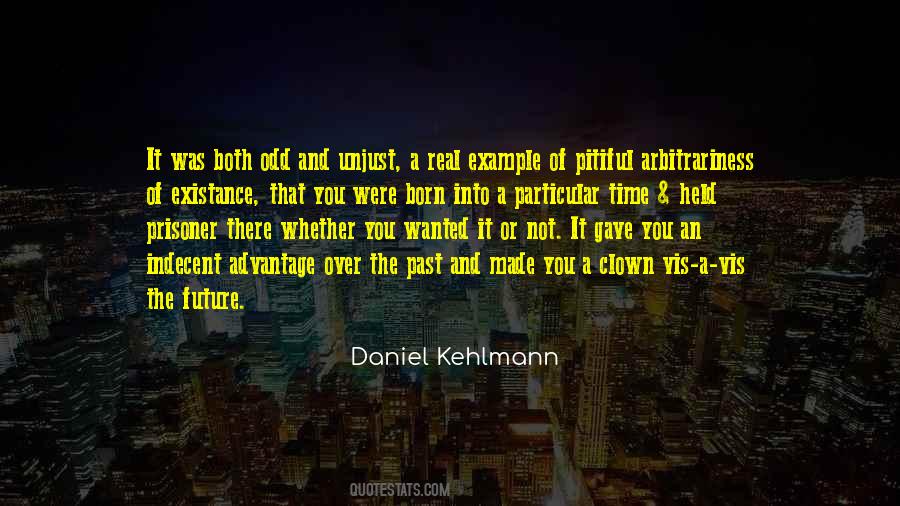
#4. Nobody, said Humboldt, had a destiny. One simply decided to feign one until one came to believe in it oneself. But so many things didn't fit in with it, one had to really force oneself.
Daniel Kehlmann
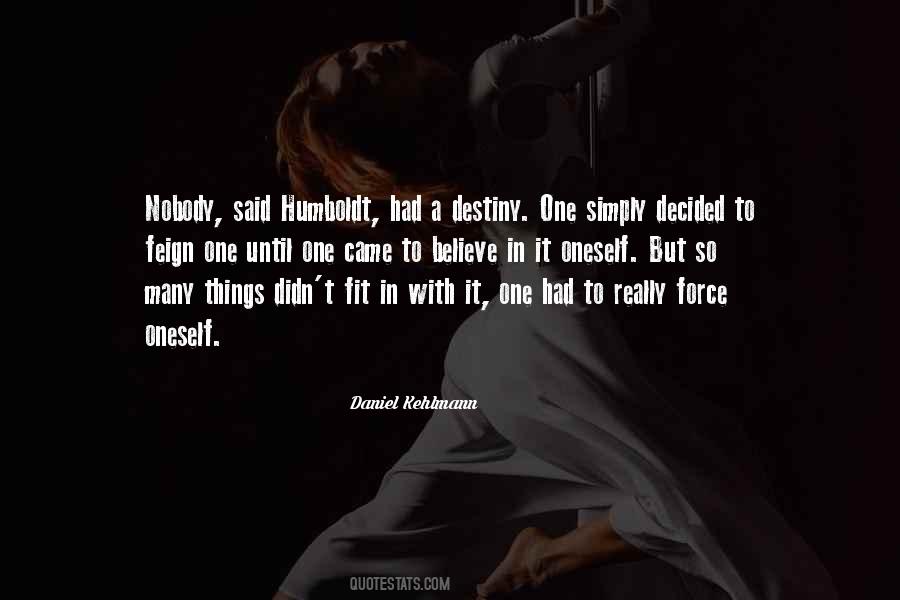
#5. Deep down, you see, I long to be arcane, esoteric. I would love to confound people with their own language.
David Levithan
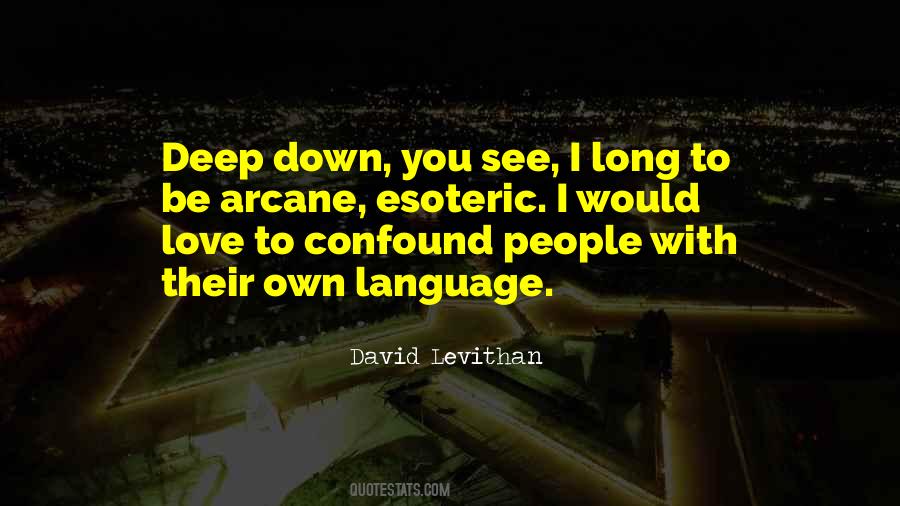
#6. I think I can work anywhere, but you don't get the same kind of inspiration everywhere. New York theater has become a big inspiration for me. I only started writing for the stage myself because I like to see the good, mostly off-Broadway plays in New York.
Daniel Kehlmann
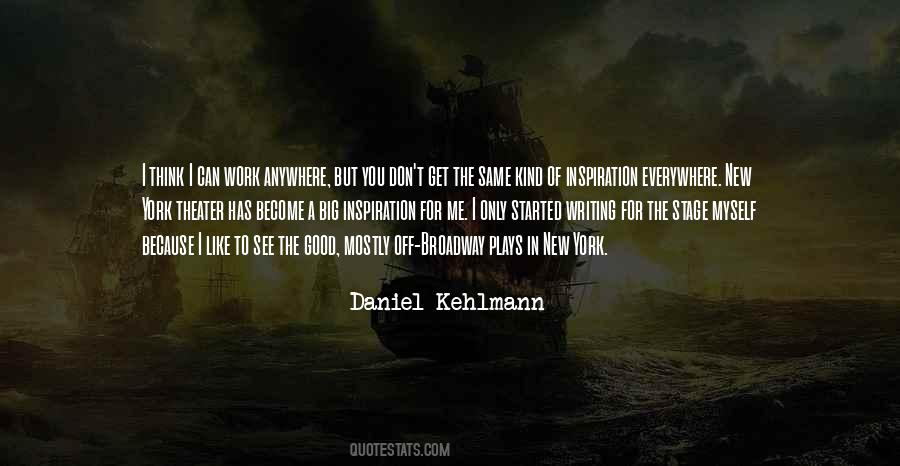
#7. I was an adventurer, and I got married a few times. I kept trying to find a relationship as good as my parents'.
Jacki Weaver
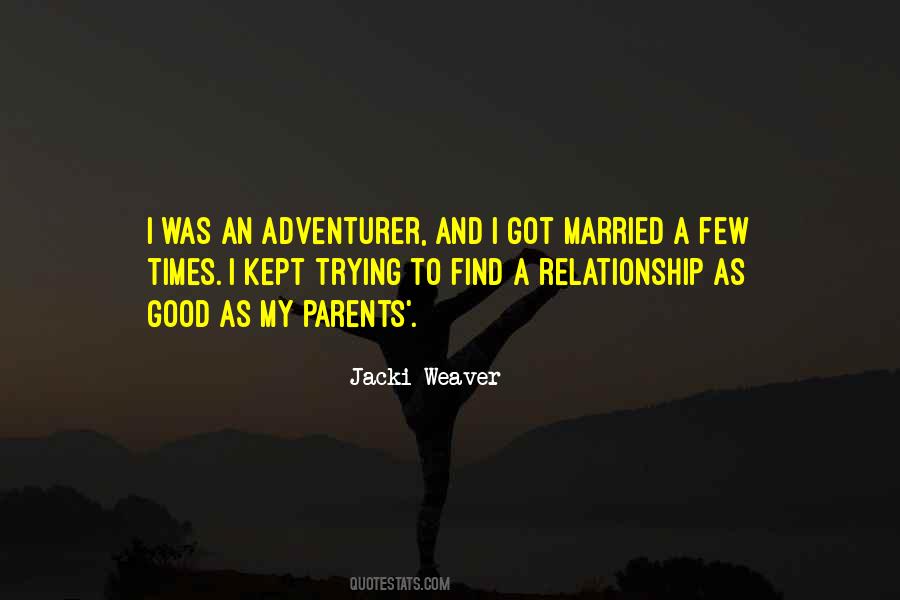
#8. A neglect of one's sentimental education early in life could bear the most unfortunate fruit.
Daniel Kehlmann
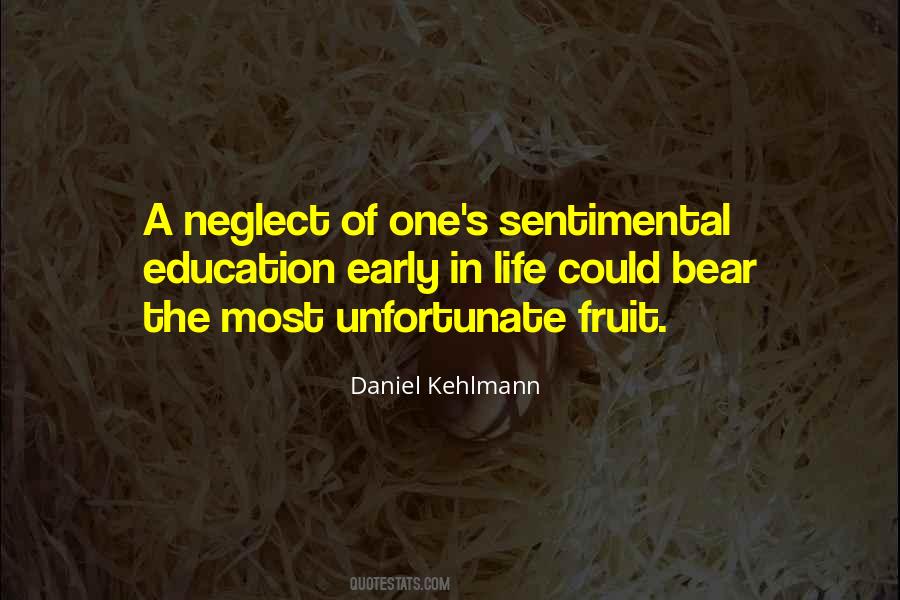
#9. I'm trying to exploit the bestseller, in a way, but not in the sense of repeating the formula. It's just that the bestseller did so well economically that now I'm freer to do what I want to do, or to try out what I want to try out.
Daniel Kehlmann
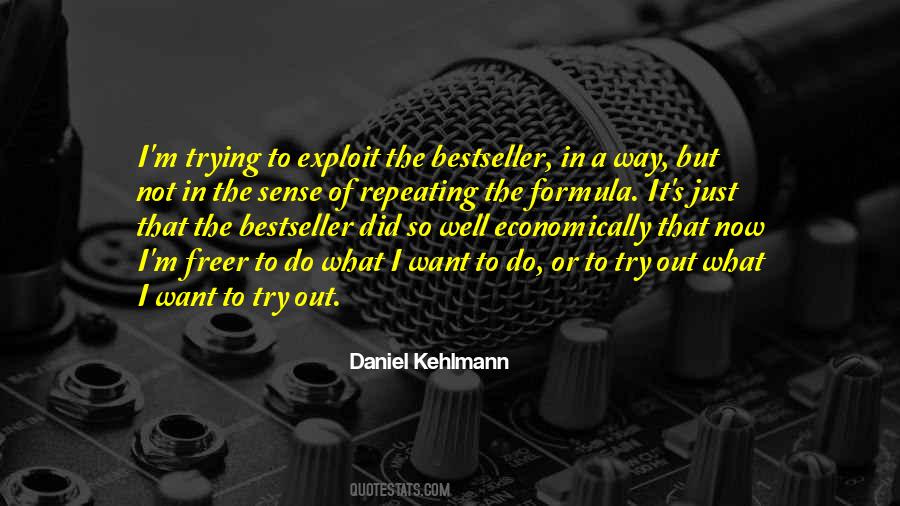
#10. Never waste a prayer on something that isn't important.
Oscar Goodman
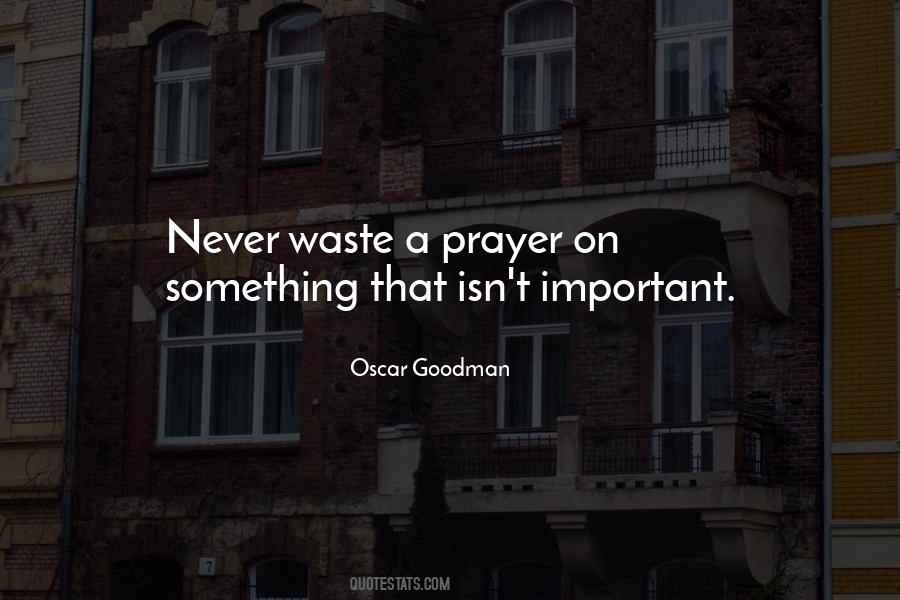
#11. I wanted to write a book that would leave open many riddles and mysteries, even to me. Of course in some cases I do know the answers, but in many others I don't know and don't want to know.
Daniel Kehlmann
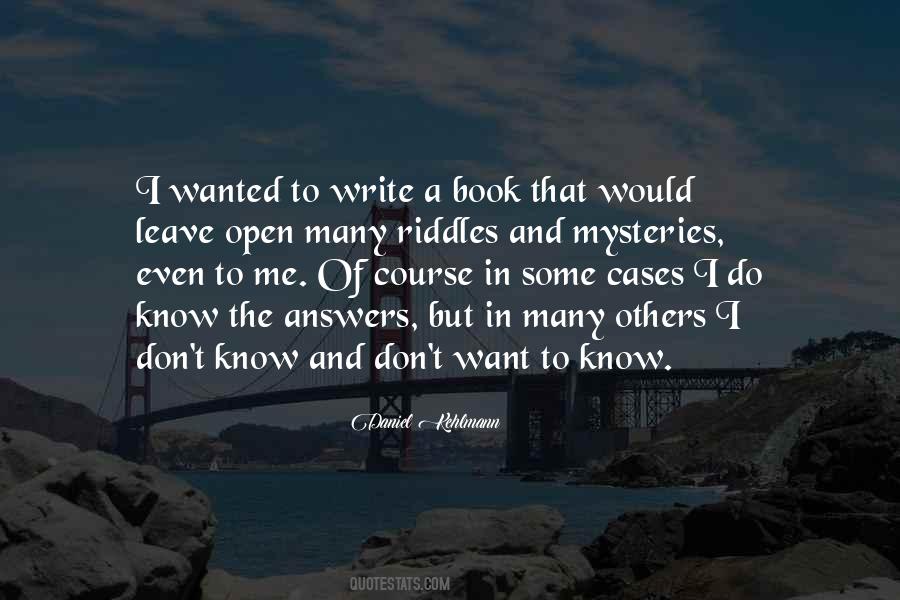
#12. Exactly as we might ask God, and do ask God, to change our fate. The difference is that in the story the writer actually replies and in the end even changes his mind.
Daniel Kehlmann
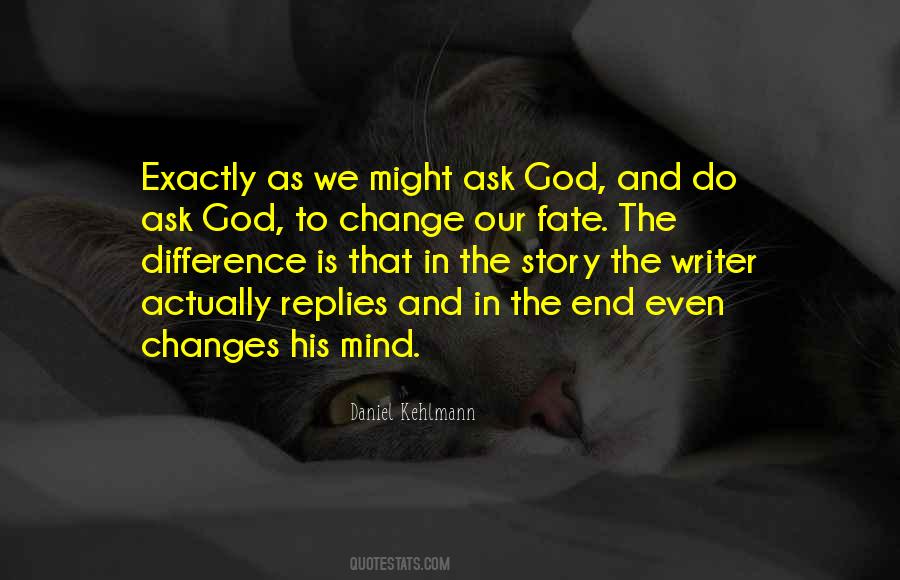
#14. You say fate is almost indispensable to literature - I think it's completely indispensable, at least in a novel, because a novel always has a plot. Even if nothing happens, even if someone just spends a day walking around Dublin, or whatever, there's still something going on.
Daniel Kehlmann
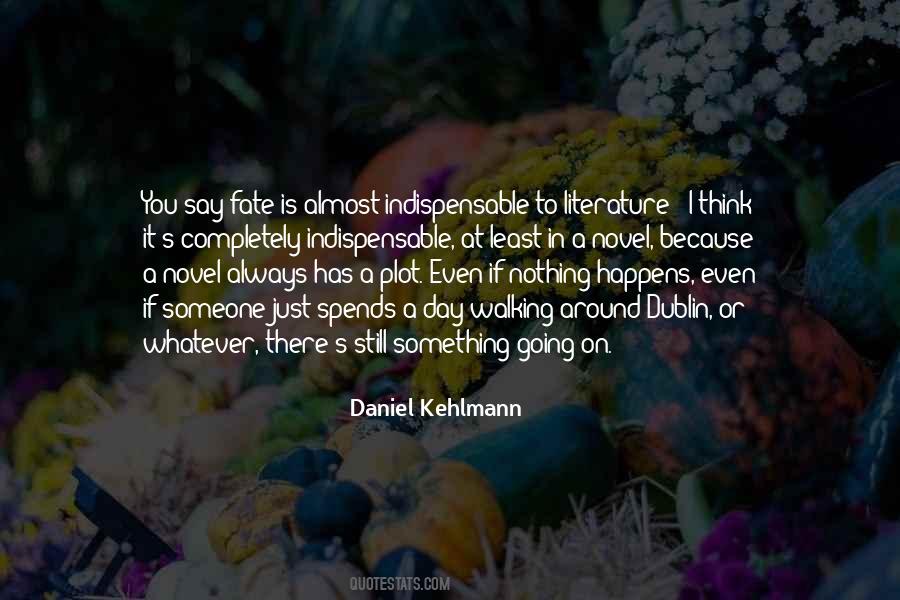
#15. Also, whenever you have direct speech, and I don't quite know why, but it always gets better in English. Dialogue, the flow of dialogue, English just has a better way with it.
Daniel Kehlmann
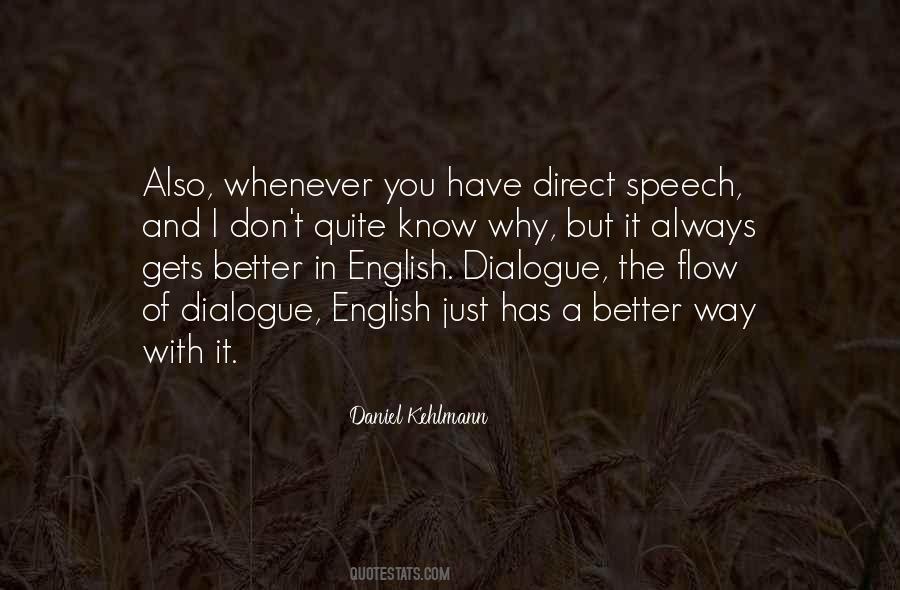
#16. I feel 80% of my life is completely normal.
J.K. Rowling
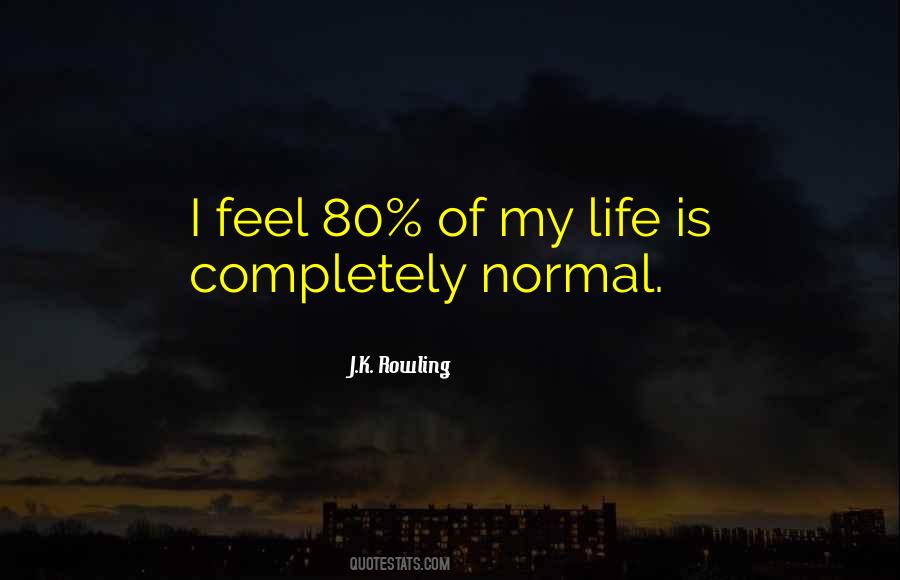
#17. He's the only man I know of who can hide his own easter eggs.
Bobby Heenan
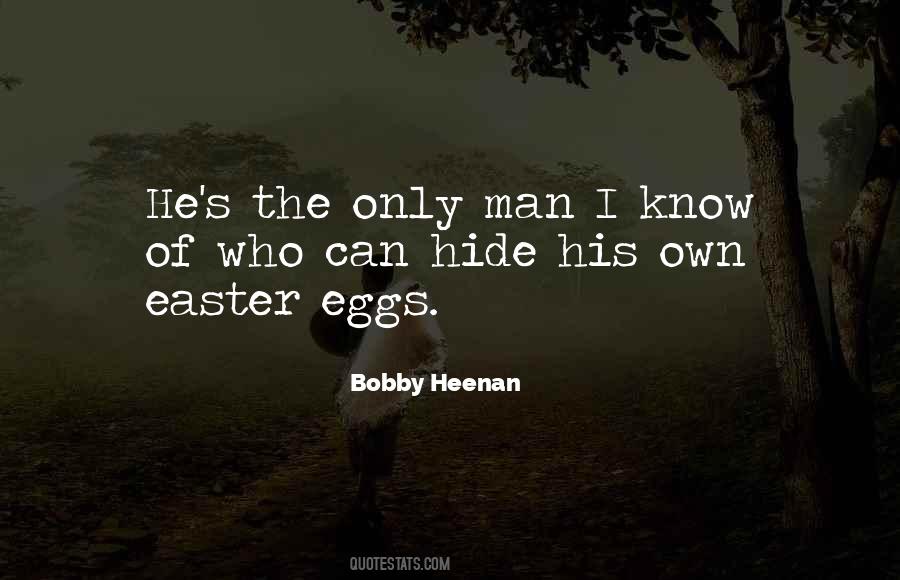
#18. It's precisely the sense that we're different that makes us so banal.
Daniel Kehlmann
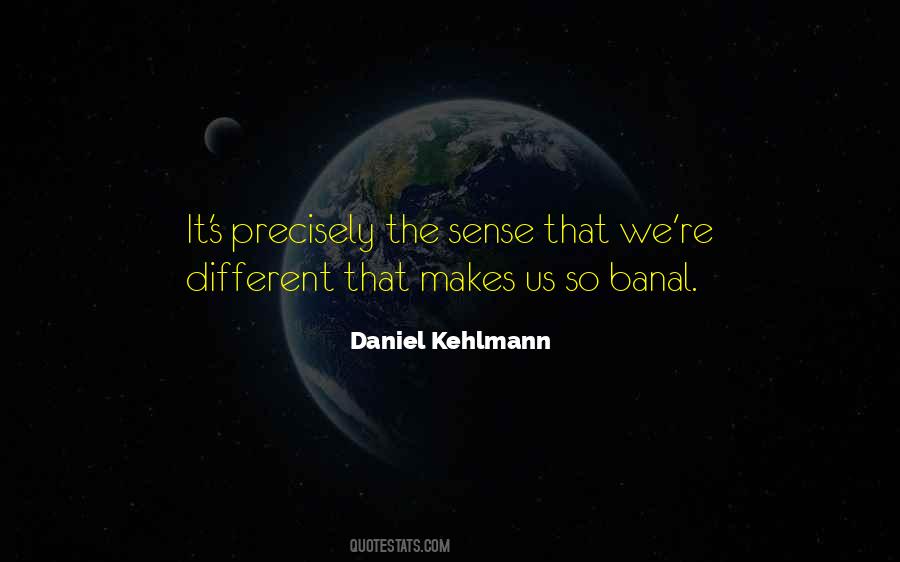
#19. English has a better way with colloquialisms. It has colloquialisms that are colorful and expressive but not too heavy or distracting. In German, if you use colloquialisms, it quickly descends into some kind of dialect literature.
Daniel Kehlmann
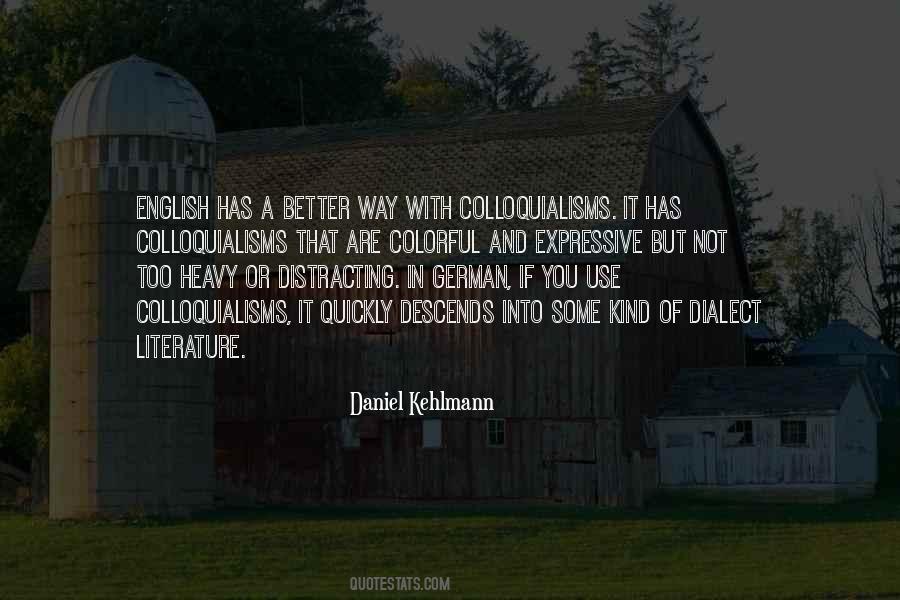
#20. For a while I never show anybody what I'm writing, and during that time I need the feeling that publishing is only an option. I might publish this, I might not. I think if I had to publish it, I might panic.
Daniel Kehlmann
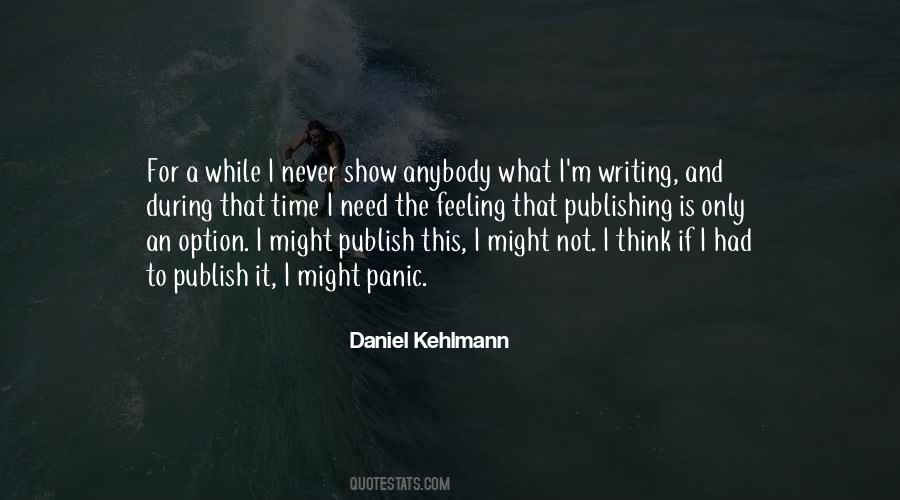
#21. German can take a lot more pathos than English can. When you say "pathetic" in English it's a disparaging term, but when you say "pathetisch" in German it's just a description, not necessarily negative. That says a lot already.
Daniel Kehlmann
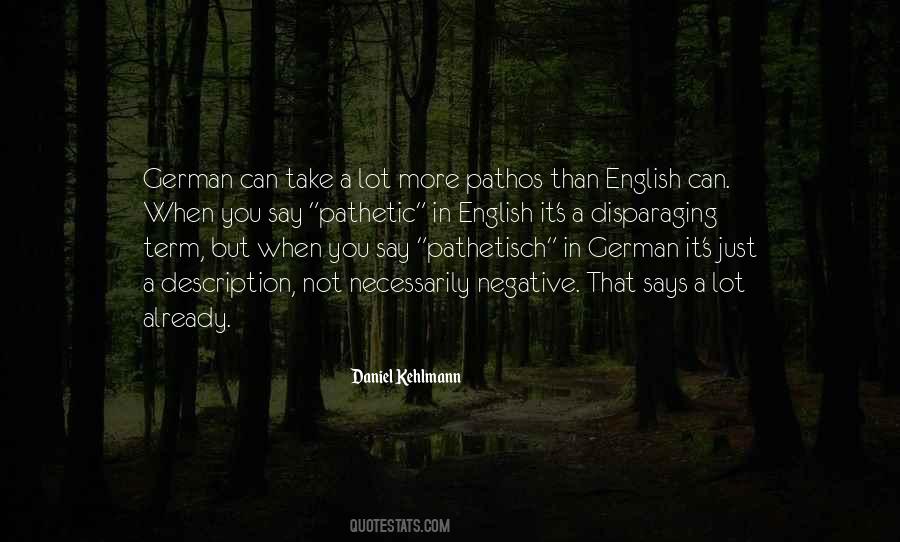
#22. People who have experienced nothing love to tell stories while people who have experienced a great deal suddenly have no stories to tell at all.
Daniel Kehlmann
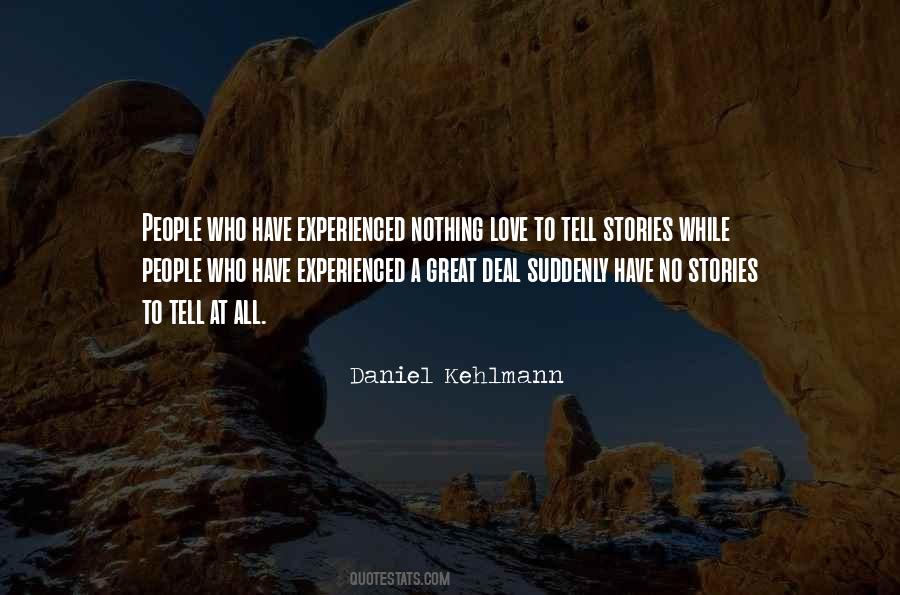
#23. That was the moment when he grasped that nobody wanted to use their minds. People wanted peace. They wanted to eat and sleep and have other people be nice to them. What they didn't want to do was think.
Daniel Kehlmann
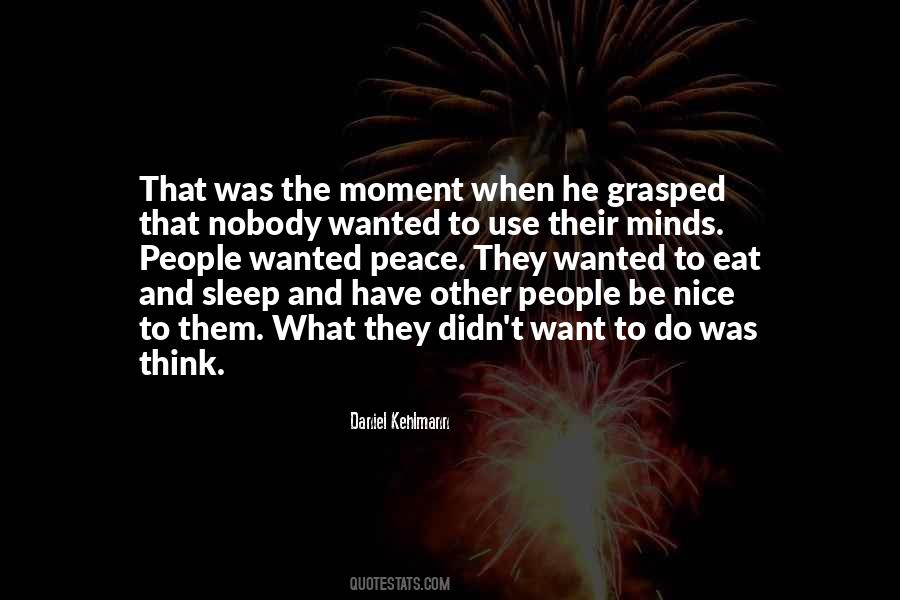
#24. We think in terms of fate even if we don't believe in it. Even something as trivial as missing the bus - we think: Well, it might be good for something. We always have that thought, no matter how critical we try to be. The idea that everything is always total chance - we're not made for that.
Daniel Kehlmann
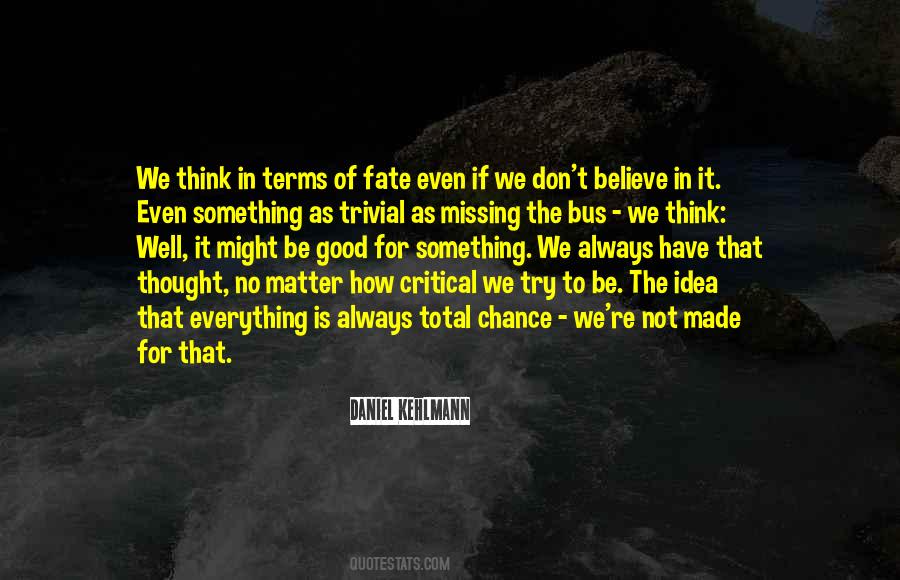
#25. The key of 'The Earth from Above,' and of 'Home' is to show the beauty of the planet, and thereby to promote love for it.
Yann Arthus-Bertrand
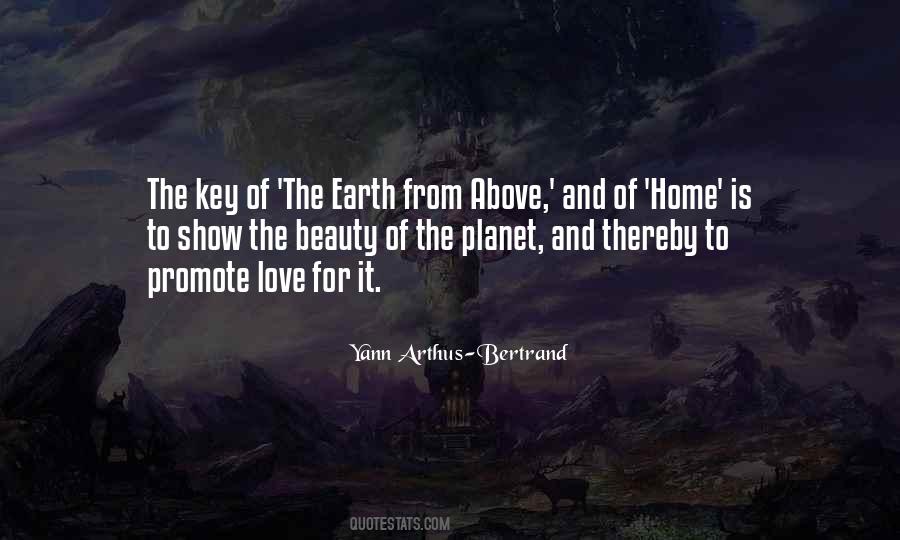
#26. Whenever things were frightening, it was a good idea to measure them.
Daniel Kehlmann
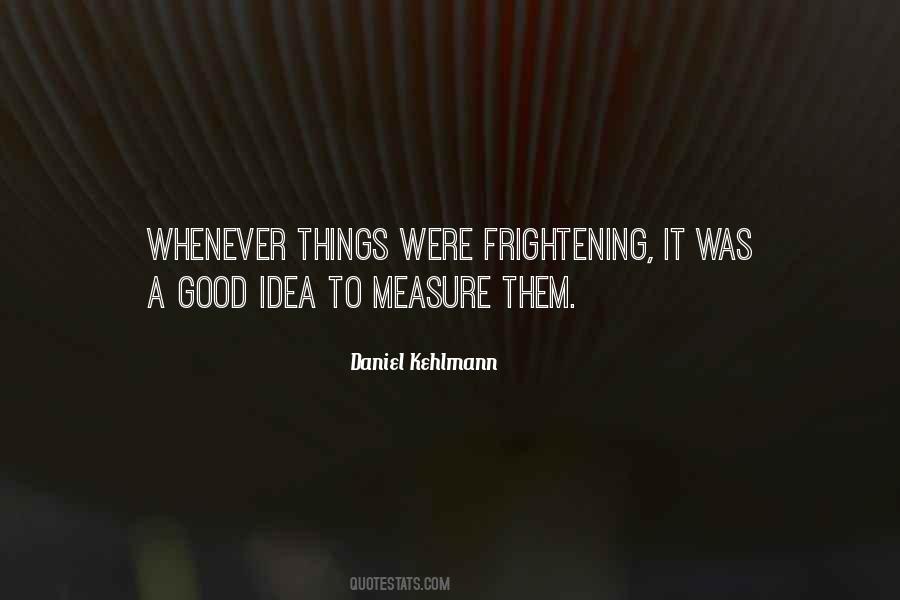
#27. I think that's just what happens when you write a big bestseller. After that you need to find out: What's the best way to go on? And the worst thing you could do would be to try to repeat the formula. That would be suffocating.
Daniel Kehlmann
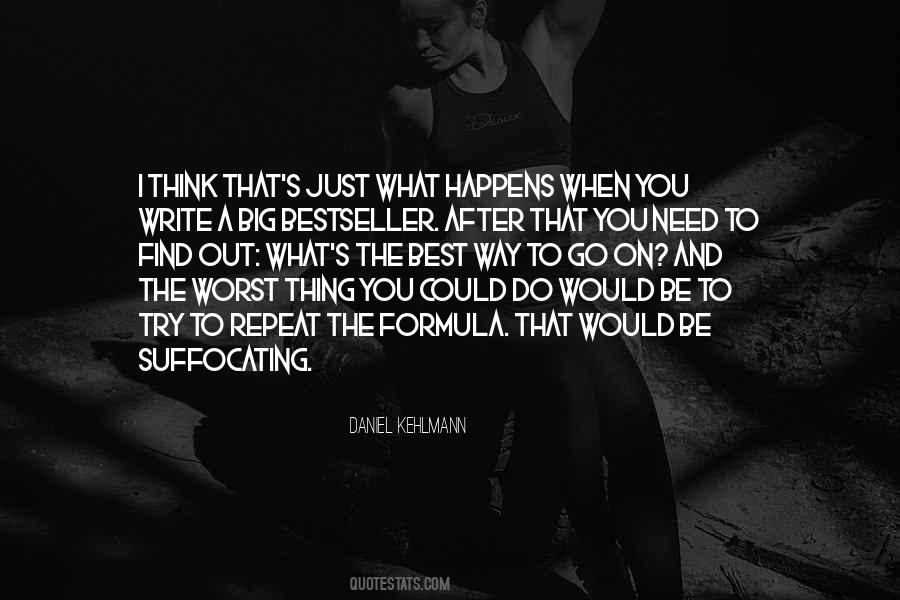
#28. It's also one of these strange points where metaphysics converges with economy. Because really what the experts are doing is creating value by banishing doubt. All great dead painters basically have this one person, this expert who has the metaphysical power to grant a seal of authenticity.
Daniel Kehlmann
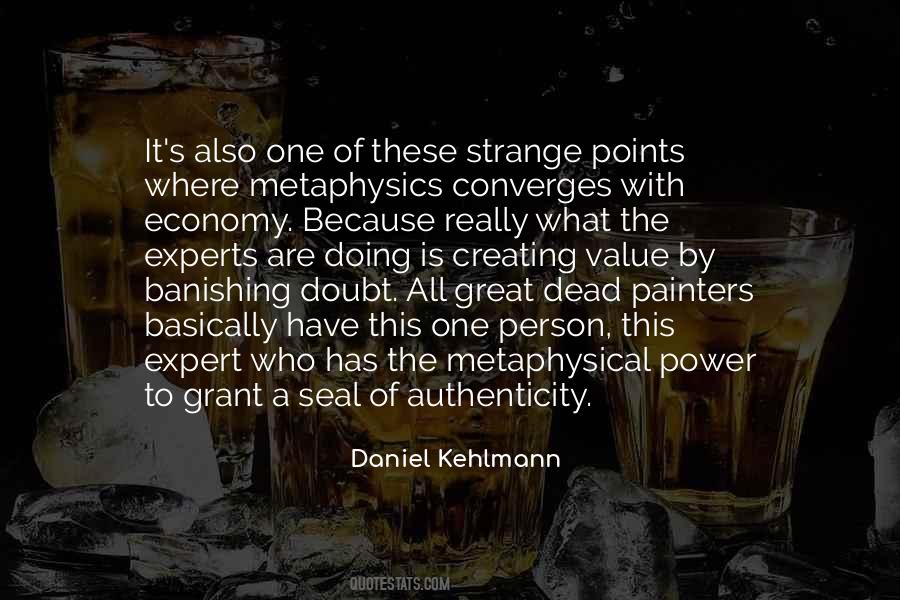
#29. Something new seems to be at work in the contemporary world - a process that is eating away the very heart of social life, not merely by putting salesmanship in place of moral virtue, but by putting everything - virtue included - on sale.
Roger Scruton
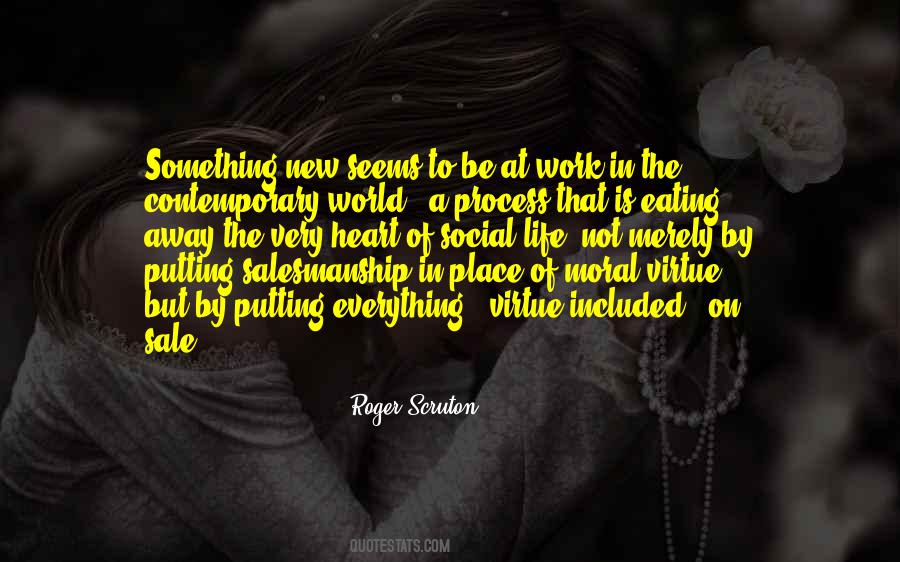
#30. When you translate the American writers who are best with dialogue into German - someone like Elmore Leonard, or Tom Wolfe, who's also quite good with dialogue. It's very hard to translate them well.
Daniel Kehlmann
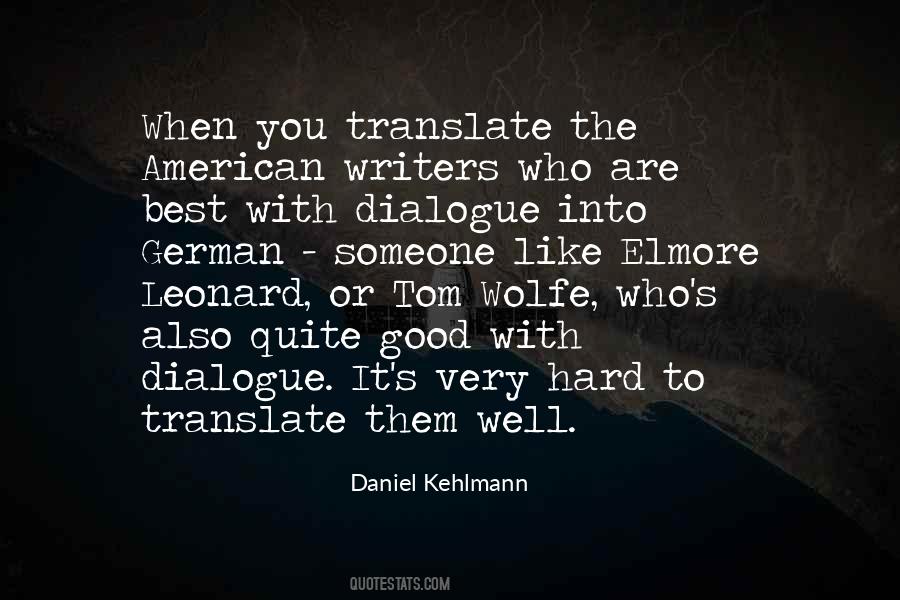
#31. English is much drier. You can get away with a lot less. Pathos, lyricism, these are things you have to tone down if you want the English version of the book to work.
Daniel Kehlmann
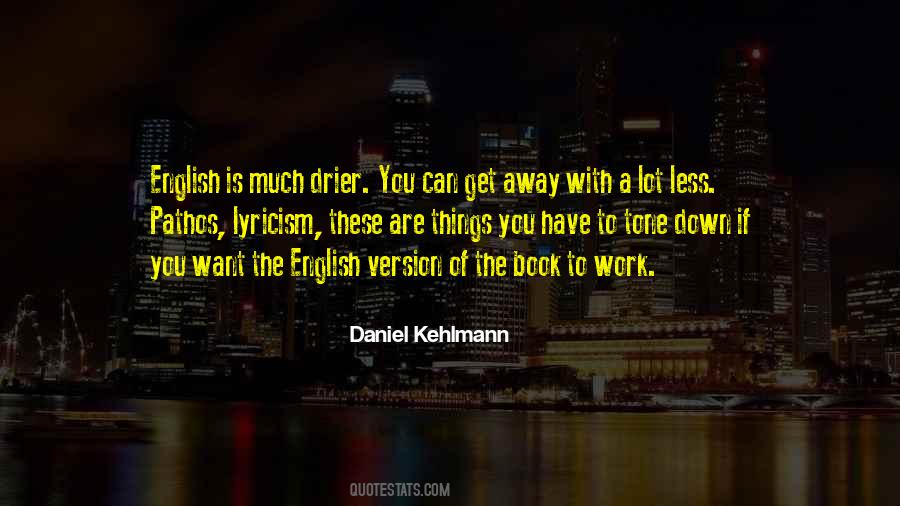
#32. When I write a book I'm always questioning the project as a whole. I always feel I might have to just throw it away and forget about it, and I've done that with novels I've started and worked on for a long time. It's an option I need in order to write freely.
Daniel Kehlmann
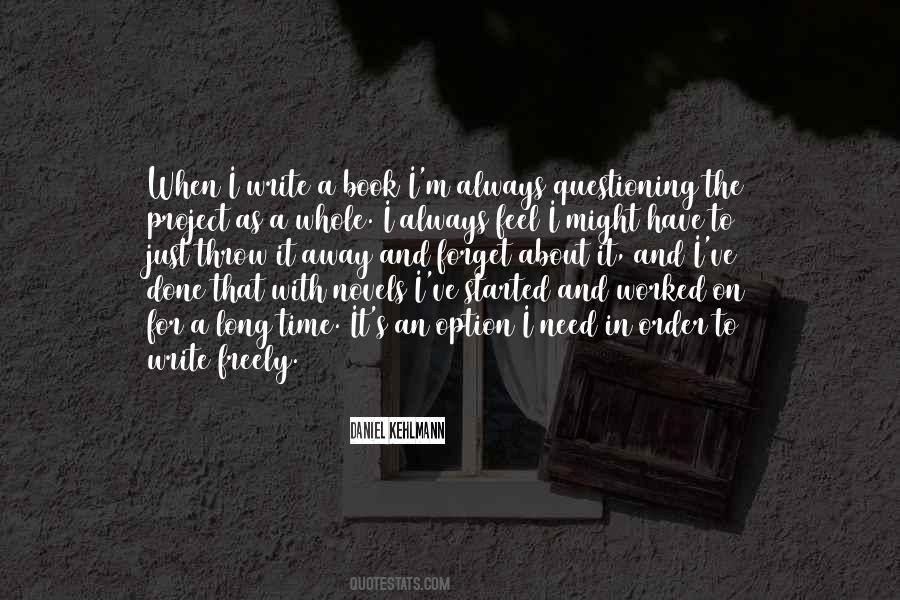
#33. When I look at life I try to be as agnostic and unmetaphysical as possible. So I have to admit that, most probably, we do not have a fate. But I think that's something that draws us to novels - that the characters always have a fate. Even if it's a terrible fate, at least they have one.
Daniel Kehlmann
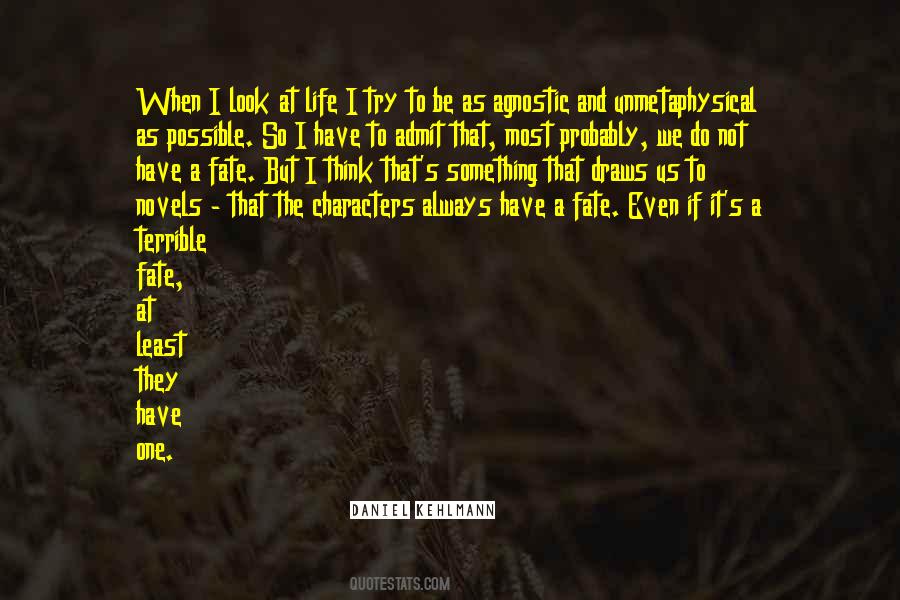
Famous Authors
Popular Topics
Scroll to Top












